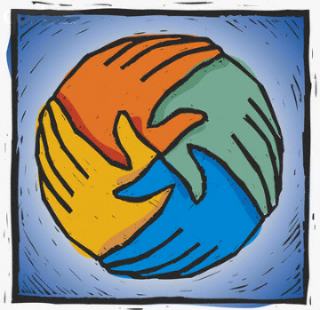December 22, 2009
Written by C.N.
Racial/Ethnic Relations in 2009: The Best & Worst
As we near the end of 2009, it’s fitting to review the major events, developments, and trends in U.S. racial/ethnic relations in 2009. Therefore, below is my look back at some of the positive highlights as well as the setbacks in terms of achieving racial/ethnic equality, with a particular focus on Asian Americans (my area of expertise). This list is not meant to be an exhaustive review of all racial/ethnic news in 2009, but rather the ones that I covered in this blog and ones that I believe have the most sociological significance.
The Best
- King, Obama, Tet, and the Diversity of Change
A new year brings new hope as we connect Martin Luther King, Barack Obama’s historic election, and Tet the Vietnamese Lunar New Year, around the theme of change, rebirth, and renewal. - Gary Locke and the Future of Asian American Identity
How Gary Locke’s confirmation as Secretary of Commerce represents the forging of a new identity for Asian Americans as they contribute to strengthening American society in the 21st century. - Jim Yong Kim: First Ivy League President
Korean American Dr. Jim Yong Kim is named Dartmouth’s next President, becoming the first Asian American president of an Ivy League school. - Kimchi Quesadillas and Korean BBQ Tacos
The fusion of Korean and Mexican food in Los Angeles represents another melding of different cultures in contemporary American society. - Congratulations to Supreme Court Justice Sonia Sotomayor
A short piece on how Sonia Sotomayor’s confirmation as the first Latino American Supreme Court Justice connects all of us as Americans. - Harry Connick Jr., Blackface, and Recognizing White PrivilegeHow Harry Connick Jr.’s reaction to an Australian blackface skit stands an a nice example of how Whites can recognize their privileged status and stand up for racial equality.
- Recession Can Lead to Better Race Relations
The current recession has certainly led to a lot of hostility and conflict, but can also help bring Americans together and bridge racial divides as they support one another. - How Immigrants Contribute to American Society
Within the partisan an emotional debates on the cultural and economic effects of immigration, several new studies point out that immigrants ultimately make several important contributions to American society. - Asian Americans Celebrate Several Congressional Achievements
The “End of Year Report” from the Congressional Asian Pacific American Caucus summarizes the major achievements by Asian Americans in the federal government, including renewing the White House Initiative on Asian Americans and Pacific Islanders, the diversity of federal appointments by President Obama, and several significant legislative proposals.

The Worst
- Asian Americans and Workplace-Employment Discrimination
New data describes employment and workplace discrimination against Asian Americans who work for the federal government and notes that while Asian Americans have the highest rates of experiencing discrimination, they are the least likely to formally report them and to file complaints. - Blacks and Latinos Hurt More by Recession
Data shows that Blacks and Latinos are the racial groups hardest hit by the current recession, based on several institutional disadvantages they face. - Questioning the ‘American’ in Asian American
Examining three recent events in which Asian Americans were questioned and challenged on whether they were really “American.” - The Degrees of Immigrant Bashing
Examining the different ways in which Americans blame and attack immigrants for the political and economic problems that we face. - The Larger Context of the Professor Gates Racial Profiling Incident
Putting the racial profiling incident involving Harvard professor Henry Louis Gates in a large sociological context unfortunately reveals how fragmented race relations remain in American society. - Swimming Pools and Modern Day Segregation
The racial discrimination at a swimming pool in suburban Philadelphia sadly reveals the limits of being colorblind and unfortunate persistence of American racism. - Economic Competition and Intra-Minority Tensions
Examining both the individual motives and institutional factors that have contributed to a pattern of recent physical attacks against Asian American students in Philadelphia. - New York Marathon Winner: Not a ‘Real’ American?
Questions about Meb Keflezighi’s ‘American’ identity after winning the New York City Marathon is the latest example of anti-immigrant and anti-minority backlash among many White Americans. - Escalation of Student Racial Violence in Philadelphia
An escalation of violence between African American and Asian American students in Philadelphia highlights not just racial tensions but also the utter failure of school leaders.
As we turn the page on 2009 and the entire decade (one that many Americans would like to forget), let’s hope that 2010 and the new decade will lead to more prosperity, equality, and harmony for Americans from all racial, ethnic, and cultural backgrounds.

